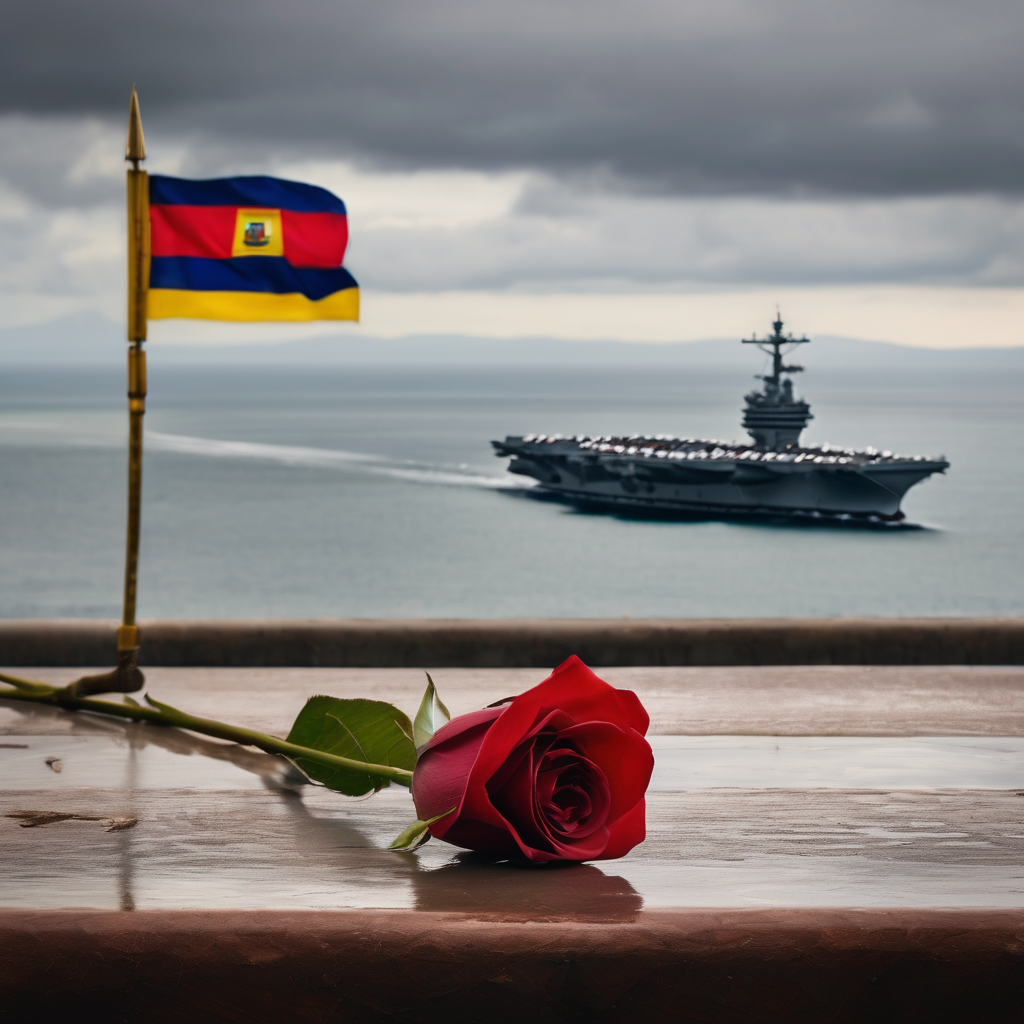CARACAS — Venezuelan President Nicolás Maduro accused the U.S. government of creating a fabricated conflict against him as the USS Gerald R. Ford, the world’s largest aircraft carrier, moves closer to the South American nation. In a national address on Friday, Maduro claimed that the Trump administration is “fabricating a new eternal war,” reflecting his concerns over increased U.S. military presence in the region.
Simultaneously, Maduro initiated legal proceedings to revoke the citizenship of opposition leader Leopoldo López, whom he alleges is inciting a military invasion. López, a notable figure in the Venezuelan opposition currently living in exile in Spain, has openly supported the deployment of U.S. ships and military actions against alleged drug trafficking operations.
“They have promised to refrain from engaging in wars but are fabricating one that we will avoid,” Maduro stated, countering allegations from Trump, who has accused him of leading the Tren de Aragua criminal organization without presenting evidence. Maduro dismissed these claims as part of an extravagant and entirely false narrative.
U.S. military forces have previously targeted vessels off the Venezuelan coast involved in drug trafficking, resulting in multiple casualties among suspects. Although the Tren de Aragua criminal group originated in a Venezuelan prison, it is better known for its activities in extortion, contract killings, and human smuggling rather than significant drug trafficking operations.
Amid these tensions, Maduro’s administration has labeled López’s actions as “grotesque” and “illegal.” Venezuelan Vice President Delcy Rodríguez announced that López’s nationality would be revoked for promoting what the government calls “an economic blockade” and inciting violence against Venezuelans alongside foreign powers.
López responded through social media, challenging the legality of the government’s actions and reiterating his call for freedom in Venezuela. He stated that no Venezuelan born within the country can have their nationality revoked, expressing his condemnation of Maduro’s regime and his commitment to pursue any measures necessary to end what he views as a dictatorship.
Having previously served more than three years in military prison for leading protests against the government in 2014, López now faces a contentious political landscape as the situation in Venezuela continues to evolve amidst external pressures and internal dissent.
